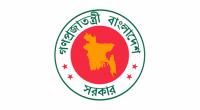 The bill for the Digital Security Act 2018 will be not passed in the Parliament’s ongoing session as lawmakers unanimously granted two more months further scrutiny.
The bill for the Digital Security Act 2018 will be not passed in the Parliament’s ongoing session as lawmakers unanimously granted two more months further scrutiny.
Ruling MP Imran Ahmed, who chairs the Parliamentary Standing Committee on Post, Telecom and ICT, floated the proposal during Wednesday’s session which was passed by a voice vote.
On Jan 29, the Cabinet gave the green light to the new law’s draft and on Apr 9, it was tabled in the House by Telecoms and ICT Minister Mustafa Jabbar, when the Standing Committee was given a month to scrutinise it.
The proposed law, however, has drawn criticisms with journalists and rights activists find it will effectively stifle the media as well as prevent investigative reporting.
The proposed Digital Security Act will stifle the media as several of its will effectively prevent investigative reporting, says the Editors’ Council.
On May 22, the Standing Committee invited media representatives and three ministers — Law Minister Anisul Huq, Telecoms and ICT Minister Mustafa Jabbar and State Minister for ICT Zunaid Ahmed Palak in a meeting, after which the government said the concerned provisions will be revised.
The proposed Digital Security Act 2018 incorporates issues addressed in the controversial Section 57 of the ICT Act in an elaborated way.
Section 57 criminalises ‘publication of fake, obscene or defaming information in electronic form’.
An offence under this provision of the Act is punishable by at least seven years to a maximum of 14 years’ imprisonment. Fine can be as much as Tk 10 million.
Rights defenders have described Section 57 as ‘draconian’ saying the law-enforcers misuse it.
The new law addresses the same issues ‘in detail’, Cabinet Secretary Md Shafiul Alam had said after the government cleared the draft earlier this year.
Journalists and rights activists say the new law will severely hamper investigative reporting, especially, Section 32, which defines storing and transferring confidential government data as well as aiding and abetting such efforts as espionage.
It keeps provisions of up to 14 years in jail and fines as high as Tk 2.5 million for such offences, but does not clearly define confidential data.
 National
National
41210 hour(s) 34 minute(s) ago ;
Evening 09:28 ; Sunday ; Jun 29, 2025
Digital Security bill: 2 more months for House panel to scrutiny
Send
Bangla Tribune Report
Published : 19:25, Jun 06, 2018 | Updated : 19:27, Jun 06, 2018
Published : 19:25, Jun 06, 2018 | Updated : 19:27, Jun 06, 2018
0 ...0 ...
/ehs/zmi/
Topics: Top Stories
- KOICA donates medical supplies to BSMMU
- 5 more flights to take back British nationals to London
- Covid19: Rajarbagh, Mohammadpur worst affected
- Momen joins UN solidarity song over COVID-19 combat
- Covid-19: OIC to hold special meeting
- WFP begins food distribution in Cox’s Bazar
- WFP begins food distribution in Cox’s Bazar
- 290 return home to Australia
- Third charter flight for US citizens to return home
- Dhaka proposes to postpone D8 Summit
Unauthorized use of news, image, information, etc published by Bangla Tribune is punishable by copyright law. Appropriate legal steps will be taken by the management against any person or body that infringes those laws.
Bangla Tribune is one of the most revered online newspapers in Bangladesh, due to its reputation of neutral coverage and incisive analysis.
F R Tower, 8/C Panthapath, Shukrabad, Dhaka-1207 | Phone: 58151324; 58151326, Fax: 58151329 | Mob: 01730794527, 01730794528


